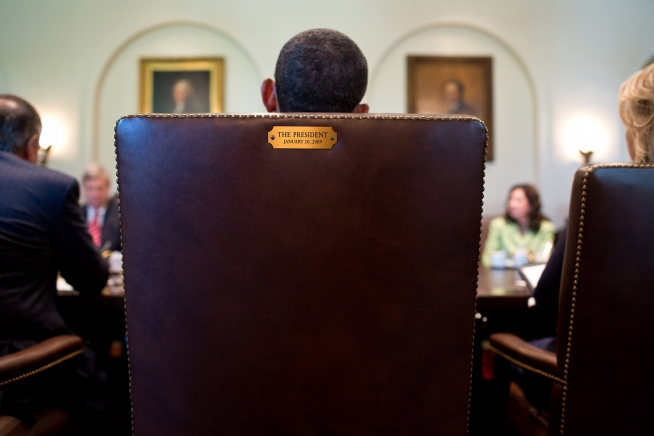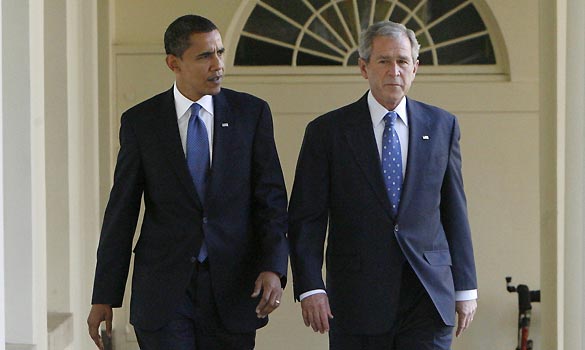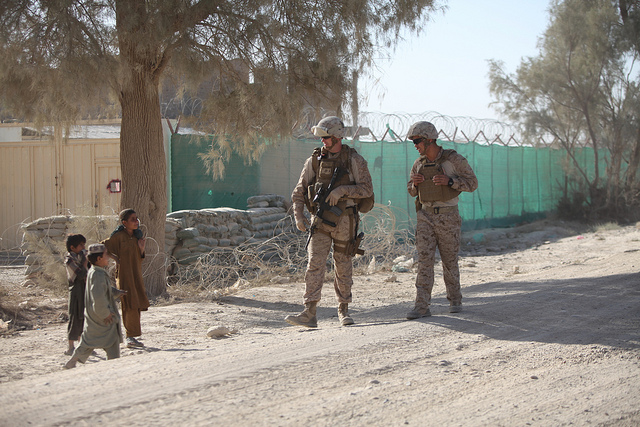
During his Senate confirmation hearing, Obama’s pick for CIA director, John Brennan, placated the Senate committee by promising to impose greater transparency on the drone war. He even promised to acknowledge publicly when drone strikes kill civilians (that’s a lot easier to do when you regard as automatically guilty anyone who is killed by a drone strike).
Some commentators have tried to argue that Obama and Brennan truly yearn to be more transparent about the drone war. They point to Brennan’s speech last year at the Woodrow Wilson Center, which was the first official public acknowledgement of the drone war, as well as to Obama’s increasing willingness to acknowledge the drone war, instead of just dismissing all inquiries with “I cannot discuss classified information.”
But this perception is the byproduct of a pretty sophisticated propaganda campaign by the Obama administration. Obama has defined his approach to the war on terror with an emphasis on covert activities – either with targeted killings or JSOC commandos being deployed into countries without anybody’s knowledge. Here, he distinguishes himself from Bush, whose legacy will surely be the large conventional ground war – and subsequent military quagmire – in Iraq.
Secrecy has its benefits and its downsides. One downside to keeping the drone war entirely secret is that Obama doesn’t get to present himself as tough on terror. As long as it’s known that he is killing lots of people, there are few political costs to avoiding showy conventional ground wars. Therefore, ever since the early days of Obama’s presidency, there have been consistent leaks to the press about the wild success of drone strikes and all the bad terrorists they kill.
So why not just make the whole program public? Then Obama could get all the credit, right?
Well, there are benefits to secrecy too. Those parts of US foreign policy that are of questionable legality or are particularly cold-blooded in their execution must be kept secret in order to avoid public and judicial scrutiny. If the ugly parts of the drone war – like the fact that its illegal, kills civilians, and represents a radical expansion of executive power – were out in the open, the administration might be predisposed to some accountability. An ignorant public is absolutely essential to the functioning of Obama’s foreign policy.
So with selective leaks of the generally secret drone war, plus lots of propaganda, we end up in a situation where most of the public approves of Obama’s targeted killing program, where senators like Dianne Feinstein seriously believe the number of civilians killed is in the single digits, and where the courts have no way of challenging the program.
As US District Judge Colleen McMahon, who upheld the Obama administration’s ability to throw out legal cases by claiming disclosures would harm national security, said in her ruling, “I can find no way around the thicket of laws and precedents that effectively allow the executive branch of our government to proclaim as perfectly lawful certain actions that seem on their face incompatible with our Constitution and laws while keeping the reasons for their conclusion a secret.”
The current debate about whether or not Obama’s drone war is legal and humane is resolved by simply recognizing that it is secret. It isn’t a covert war because Obama wants to “protect sources and methods.” Indeed, enough is known about the program that sources and methods aren’t really secret. What is kept secret, revealingly, is the administration’s legal case for the drone war, as well as a government accounting of who is being killed. If it were perfectly legal and humane, Obama would have little reason to keep it secret.





